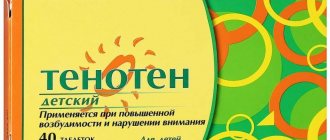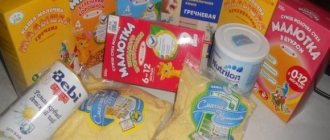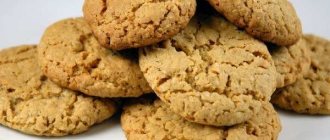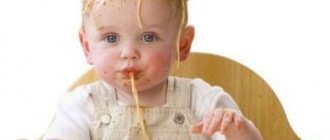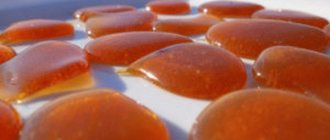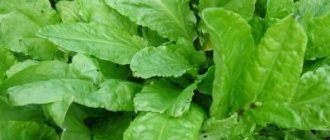An important rule recommended for adherence throughout the entire treatment is regular ventilation of the room in which the baby spends the most time. During this action, the baby should be in another room. Care should be taken to ensure that a sufficient amount of fluid enters his body. Newborn children have a physiological feature - immaturity of the respiratory muscles. This circumstance contributes to difficult expectoration of sputum. To relieve cough, parents should take care of its treatment in time.
Causes and symptoms of cough in infants
A cough can appear in a baby due to various reasons. In order to prescribe competent treatment, it is important to determine the circumstance that contributed to the problem. These may be the following:
- ARVI. It is not uncommon for parents to wonder how to treat a cough in an infant at the time of this illness. During the period of a respiratory viral disease, children cough most during sleep. During the day, the symptom appears less frequently;
- inflammation of the respiratory organs. For this reason, the baby begins to suffer from a painful type of cough - dry;
- insufficient air humidity. A sore throat may appear in the baby's throat, which is the main reason for coughing. This problem can be solved by installing a humidifier in the room;
- ear inflammation - otitis. In this case, the cough is reflexive in nature. It is extremely unpleasant for the baby; when pressing on the ear nodule, the newborn experiences painful sensations;
- penetration of foreign bodies into the respiratory system. A very dangerous situation. To remove the object, tilt the baby’s head down and promptly call an ambulance;
- contaminated air. A baby's lungs are not yet ready to be exposed to gases and foreign odors. For this reason, parents are advised not to smoke near their baby. Otherwise, the likelihood of an allergic reaction in the form of cough increases significantly.
Cough is the main symptom of a cold. Its treatment is an integral part of therapy that should not be neglected. Not all medications can be given to a newborn baby.
To prevent the development of complications, parents should consult a doctor about how to treat a baby’s cough.
You need to closely monitor children and try to eradicate the problem at the beginning of its development.
What can you give a month old baby for a cough?
Often, cough in newborns is caused by inflammation of the respiratory tract. When such a problem occurs, a cough medicine is prescribed by a pediatrician who monitors the condition of the baby in the first month of his life. After determining the nature of the reflex reaction, he decides what can be given to the baby in a particular case.
During treatment, special attention should be paid to the severity of the cough reflex. This takes into account the gestational age at which the child was born. Premature babies and babies suffering from neurological disorders are prohibited from prescribing mucolytic drugs. What infants can do for a cough in such cases is decided by a specialist.
Many pediatricians prescribe Stodal syrup. The instructions do not contain information about age restrictions, so it can be given from the first day of life. The effect of its action is a dubious phenomenon. This is a homeopathic medicine; it contains a minimum concentration of substances that can cure an infant.
General rules of treatment
You can help your child’s body cope with the disease by following the recommendations:
- Optimal air temperature. It is recommended to maintain an average temperature in the apartment - 22 degrees. Regular ventilation of rooms is recommended. If the disease is not accompanied by elevated body temperature, the baby is allowed to walk outside.
- Air humidification. The best way to do this is to use a hygrometer. The humidity indicator displayed on the device should vary from 40% to 70%.
- Drink plenty of fluids. The baby should drink enough fluids - water, breast milk or adapted milk formula.
- Massage. It can only be done as prescribed by a doctor.
- Rubbing. It is permissible to rub the child with products that contain animal fat.
Drug therapy
Cough medicines for infants will be more effective if you combine them with the above recommendations. Pediatricians prescribe the following medications for newborn children:
- Ambroxol;
- Ambrobene;
- Gedelix;
- Stodal;
- Liquorice root.
a useful article and learn about the features of treatment with Stodal for cough in children.
The choice of a specific medicine takes into account the characteristics of the baby’s health condition and the type of cough.
Recommended cough syrups from birth to one year
Young children cannot swallow tablets, so they are prescribed cough medicines that come in syrup form. Among them, the most common options are those listed below.
Children under six months old
Infants are allowed to be given several types of medications.
- Overslept. You can take it for 7 days. A single dose is half a teaspoon.
- Ambroxol. While taking it, a single dose of the medicine should not exceed 2.5. milligram. Period of use – 5 days. You can achieve a better effect by combining the syrup with enough water.
- Gedelix. The daily volume of its use is half a teaspoon of syrup diluted with warm water.
- Ambrobene. A very good syrup with a fruity taste. It must be given to the child as an expectorant 2 times a day, 2.5 ml.
About how and what to treat a cough in a 5-month-old child.
After 6 months
Upon reaching the age of 6 months, the list of approved drugs expands.
- Lazolvan . An effective drug. Available as a cough medicine and as a solution for inhalation. The syrup is given to infants for 5 days.
- Bronchicum . The drug is allowed to be taken for 14 days. Daily dose -2.5 ml. You need to drink on an empty stomach, before breakfast.
- Liquorice root. The syrup is based on natural ingredients. 2 drops of the drug are dissolved in a spoonful of water and only then given to children. The medicine is taken 3 times a day.
- Eucabalus . Single dosage – teaspoon. The course of admission is 2 weeks.
Types of medicines
When prescribing cough medicine, the doctor takes into account its type - dry or wet, and other features. The action of each medication has a specific nature of action. Depending on this, there are 3 categories of drugs:
- Mucolytics. The purpose of use is to liquefy and remove phlegm from the body.
- Antitussive medications. Effective for dry cough.
- Expectorants. Accelerate the process of clearing mucus from the respiratory tract.
Contraindications
All information about side effects and situations when the syrup should not be used by infants is indicated in the instructions for the drug. Most often, the list of contraindications for children's medications is quite similar. Syrups should not be given to babies if they have the following problems:
- individual intolerance to components;
- diabetes;
- diseases of the stomach and intestines;
- less than a week old;
- fructose intolerance.
Medicines prohibited for children
Newborns should not be given cough suppressants that come in tablet form. Medicines that have age restrictions are prohibited for use. Infants are not recommended to take glaucine hydrochloride - Glauvent, and prenoxdiazine - Libexin.
Babies can be given medications sold in drops and syrup. A weak concentration of active ingredients will not harm the child’s body. Parents are advised to approach the choice of cough medicine for their infants with special attention. Not all syrups are allowed to be consumed from birth. It is not recommended to take Gerbion or Erespal Bronholitin for children under 2 years of age.
There is an ambiguous opinion about Mucaltin tablets. The instructions indicate that they are intended for the treatment of cough in adults and older children. But the drug is based on extracts of natural medicinal herbs, so pediatricians prescribe these tablets for severe illness in children under one year of age.
What medications can and cannot be given to a child for a cough?
Those drugs that are available only in tablet form are prohibited for use in early childhood. For example:
- glaucine hydrochloride (Glauvent tablets);
- prenoxdiazine (“Libexin”).
A safe and acceptable form at an early age are drops and syrups with a low concentration of the active substance. Typically, drops and syrups for infants are diluted in water, tea or juice.
Some syrups cannot be used until two years of age or older, for example, the antitussive drug “Bronholitin”, “Gerbion” syrup for dry and wet coughs, “Erespal” syrup. Until two years of age, antitussive drugs containing narcotic substances: codeine and dextromethorphan are contraindicated for use.
What cough syrups are recommended for children from birth to one year?
All materials on the site are published under the authorship or editorship of medical professionals, but are not a prescription for treatment. Contact the specialists!
Bronchial spasm is a reflex reaction of the human body to irritants entering the respiratory system. This action cleanses the upper and lower respiratory tract. Young patients are given certain medications during this symptom. Cough syrup for children under 1 year of age is the most effective medicine at a young age.
The list of medications of this type is quite long. Self-medication in infancy is unacceptable. Only a pediatrician should prescribe syrups. Any drug has contraindications and is dangerous in large dosages. Children's medicines are given depending on age or weight. The attending physician will help you write down the prescription in detail to get rid of the negative consequences.
Child 2-12 months: causes of cough
Infancy is difficult because it is necessary to select the correct therapy for the disease. Mortality from the wrong choice of treatment ranks fifth after heart disease. Negligent attitude of parents during bronchospasm in children 3 months and older leads to pneumonia, chronic pneumonia and decreased immunity.
Cough syrups are prescribed for infants. Before prescribing, it is necessary to establish an accurate diagnosis. The main causes of bronchospasm in children under one year of age:
- Inflammation of the upper respiratory tract - the disease is characterized by dry, debilitating spasm.
- ARVI accounts for 90% of cases in the pediatrician's office. During the day the spasm is mild, but at night it intensifies.
- Excessively dry air in the baby's room - cough syrup for children under 1 year of age will not help in this case. It is necessary to normalize the humidity; if it is not possible to purchase a humidifier, then you should periodically place a wet cloth on the battery.
- Inflammation of the middle ear or otitis media - bronchospasm occurs due to the fact that the child cries all the time in pain. Parents mistakenly make a diagnosis, triggering an inflammatory process in the ear area.
- The entry of a foreign body is a situation that requires an immediate response. The child's head must be tilted forward and an ambulance must be called immediately.
A cold causes dry bronchospasm, which after 2-3 days turns into a cough with sputum. This is a normal reaction of the body to bacteria that have entered the baby’s body. A cough syrup or mixture is prescribed to a baby for cough, it all depends on the type of disease.
What can help with a cough at home?
Cough remedies: benefits of syrups
Some medicines are prescribed to children from birth. After diagnosis, the pediatrician issues a prescription with medications and method of administration. Some parents don’t like the fact that liquid medications cost 2-3 times more than tablets. In fact, the price is justified.
Cough syrups for children under one year old have a number of advantages:
- measuring spoons and cups will not allow you to make mistakes with the dosage;
- The child drinks the liquid medication easily;
- there is no danger that the medicine will get stuck in the respiratory tract and the child will choke;
- kids like the pleasant taste;
- minimum side effects, slings are made using plantain, licorice and other medicinal herbs.
Cough therapy for children under one year of age should be carried out under the supervision of a physician. If the doctor insists on inpatient treatment, there is no need to resist.
Contraindications and dangers
Cough syrup for newborns is made based on natural ingredients, this does not mean that you don’t have to think about contraindications:
- allergic reaction (individual intolerance to components);
- diabetes;
- fructose intolerance - it is added to give the medicine a pleasant taste;
- gastrointestinal diseases;
- age of the patient - the instructions for the medication always indicate the permissible age period when syrup can be given.
Liquid medications are often purchased for an infant's cough. Parents are confident that these pharmaceutical products are not harmful. Practice shows that each baby is individual, so medications must be given carefully in the indicated dosages.
It is dangerous to continue therapy when the baby has a rash or drowsiness. If there is no result, the syrup is also stopped. Contacting the clinic immediately will help you avoid trouble.
Cough medications prohibited in infancy
Acetylcysteine and carbocysteine in the composition of the drug are a reason to refuse therapy. These components are prohibited for a person at a young age. Parents should be vigilant when reading pediatrician's prescriptions; unfortunately, medical errors are not uncommon in practice.
The following syrups should not be given to an infant for cough:
- Mucomist - sold in the form of granules, from which medicines are prepared. It can be used from the age of two, but not earlier;
- Mucodin - the instructions indicate that this drug can be used to treat bronchospasm in children from one month of age. In Europe, the drug is considered dangerous for a small organism; the syrup can only be used at 2.5 years of age;
- Fluditec is a mucolytic drug; the annotation says that the medication can be taken from two years of age.
What can you give a child with severe bronchospasm? This question is asked by many parents who want to save their baby from a debilitating cough. Pharmaceutical companies offer a number of syrups that can be used from 6 months and even for younger children.
Ambrobene for newborns
For infants, medications are chosen carefully. The pediatrician prescribes Ambrobene if the baby suffers from a debilitating dry cough. Severe spasm interferes with sleep and eating. The main advantage of the drug is the absence of side effects if the dosage is strictly followed.
A cough suppressant for children is prescribed during the following diagnosis:
- bronchial asthma;
- bronchitis;
- acute stage of pneumonia;
- respiratory inflammation.
The mucolytic expectorant has a safe composition: hydrochloric acid, purified water, ambroxol hydrochloride and potassium sorbate. The dosage of syrup up to two years of age should not exceed 2.5 ml per dose, no more than 2 times a day.
According to parents, Ambrobene is an effective cough medicine that has a pleasant raspberry flavor. Even the first month of life is not a contraindication for the use of syrup during the treatment of a disease accompanied by bronchospasm.
Ambroxol for wet cough in children under one year old
The main task of the drug is to remove mucus from the lungs and respiratory tract. Ambroxol is a cough syrup for infants, which is prescribed during productive bronchospasm. It is even prescribed to premature babies if ARV and other diseases develop:
- asthma;
- laryngitis;
- pneumonia;
- tracheobronchitis;
- inflammation of the bronchi.
The most effective remedies for treating dry and wet cough in children under one year of age - Topotushki
Cough is a reflex reaction of the body to the action of an irritant. With the help of this symptom, the airways are cleansed. It can appear in a person at any age. Newborns and infants are no exception.
Causes of cough in infants
There are many reasons for a baby to cough. The most common are:
- ARVI. In almost 90% of cases, cough in infants is the first sign of an incipient respiratory disease. In the daytime it is weakly expressed, in the evening and at night it intensifies.
- Inflammation in the upper respiratory tract. A dry and persistent cough appears. It is very painful for a child.
- Dry indoor air. Because of it, a sore throat occurs, causing a cough. Installing a humidifier will help solve the problem.
- Otitis media or inflammation of the middle ear. The cough is a reflex. When pressing on the ear tragus, the baby becomes restless, capricious, and cries.
- Entry of a foreign body. Life-threatening situation for a child. You need to tilt the baby's head forward and immediately call an ambulance.
- Polluted air outdoors or indoors. The baby's immature lungs react sharply to outside odors. Smoking and excessive gas pollution can trigger an allergic reaction in an infant.
Depending on the cause, the nature of the cough itself varies. For colds, the most common types are dry and wet. A dry cough develops at the very beginning of the disease and is characterized by insufficient sputum production. Gradually it can turn into wet.
How do cough medications work?
To treat different types of cough, three groups of drugs with different active ingredients are used:
- Antitussives. Suppress cough. They are used during dry paroxysmal severe cough, whooping cough in order to alleviate the baby’s condition. The active ingredients of such drugs are: sodium butamirate, glaucine hydrochloride, oxeladin.
- Mucolytics. They dilute mucus, reduce its elasticity and viscosity. Prescribed for dry, non-productive cough (with sputum difficult to separate), usually in combination with expectorants. Active ingredients: ambroxol, carbocisteine, bromhexine.
- Expectorants. They are prescribed for a wet cough in a child to facilitate the separation of sputum by increasing its quantity and accelerating its movement through the respiratory tract. As a rule, extracts of medicinal plants are used. Babies may experience allergic reactions to some types of herbs, so expectorants should be used with caution and under the supervision of a doctor.
Important! It is prohibited to independently combine antitussive drugs with expectorants and mucolytics. If there is an excessive accumulation of sputum and there is no cough, pneumonia can quickly develop.
What medications can and cannot be given to a child for a cough?
Those drugs that are available only in tablet form are prohibited for use in early childhood. For example:
- glaucine hydrochloride (Glauvent tablets);
- prenoxdiazine (“Libexin”).
A safe and acceptable form at an early age are drops and syrups with a low concentration of the active substance. Typically, drops and syrups for infants are diluted in water, tea or juice.
Some syrups cannot be used until two years of age or older, for example, the antitussive drug “Bronholitin”, “Gerbion” syrup for dry and wet coughs, “Erespal” syrup. Until two years of age, antitussive drugs containing narcotic substances: codeine and dextromethorphan are contraindicated for use.
Is it possible to give Mukaltin tablets to children under one year of age?
The tablets are intended for adults and older children. However, pediatricians, despite the restriction in the instructions for up to a year, consider it possible to give some tablets based on extracts of medicinal herbs to babies earlier.
Such tablets include “Mukaltin”, which contains marshmallow extract. The daily dose for a child under one year of age should not exceed two tablets. At one time, half a tablet is given, previously dissolved in a tablespoon of boiled water.
What can you give to children from two months to a year for dry cough?
Antitussives
Drops "Codelac NEO" (Russia). Active ingredient: butamirate. For children from two months, 10 drops 4 times a day.
How do cough medications work?
To treat different types of cough, three groups of drugs with different active ingredients are used:
- Antitussives. Suppress cough. They are used during dry paroxysmal severe cough, whooping cough in order to alleviate the baby’s condition. The active ingredients of such drugs are: sodium butamirate, glaucine hydrochloride, oxeladin.
- Mucolytics. They dilute mucus, reduce its elasticity and viscosity. Prescribed for dry, non-productive cough (with sputum difficult to separate), usually in combination with expectorants. Active ingredients: ambroxol, carbocisteine, bromhexine.
- Expectorants. They are prescribed for a wet cough in a child to facilitate the separation of sputum by increasing its quantity and accelerating its movement through the respiratory tract. As a rule, extracts of medicinal plants are used. Babies may experience allergic reactions to some types of herbs, so expectorants should be used with caution and under the supervision of a doctor.
Important! It is prohibited to independently combine antitussive drugs with expectorants and mucolytics. If there is an excessive accumulation of sputum and there is no cough, pneumonia can quickly develop.
